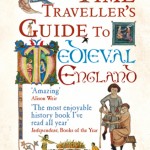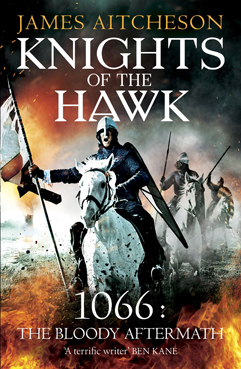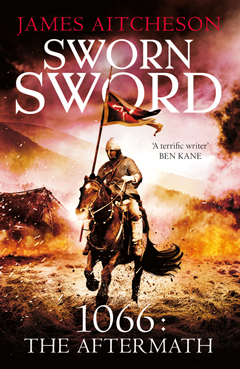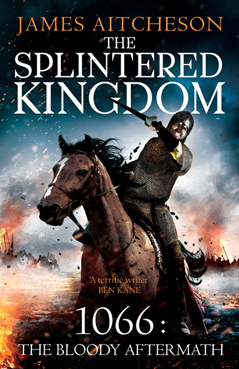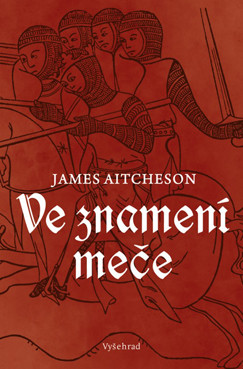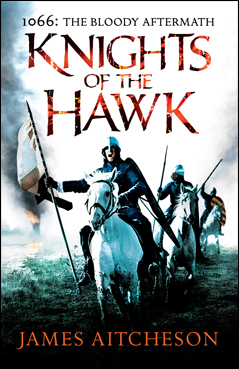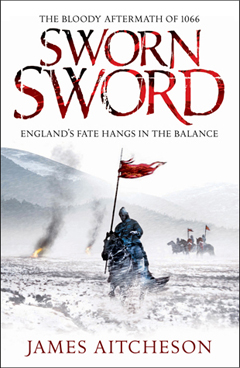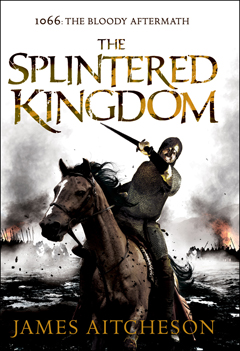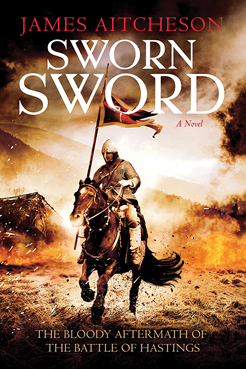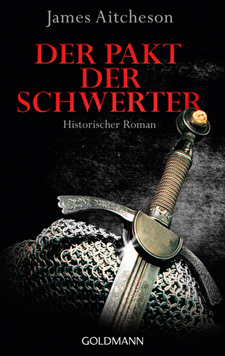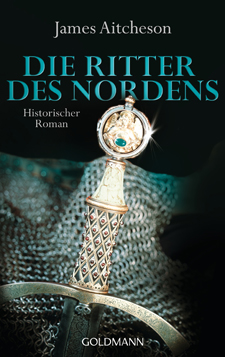With 2011 drawing to a close, I’ve chosen some of my favourite historically themed books of the past twelve months, both new releases and older titles recently discovered. Among my recommendations are works of both fiction and non-fiction, so with any luck there’s something in the list below to suit every taste. In no particular order, then, here are my personal picks of the year:
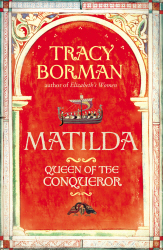 Matilda: Queen of the Conqueror
Matilda: Queen of the Conqueror
Tracy Borman
Jonathan Cape, 320 pp., £20
Hardback
Historian Tracy Borman delivers a brilliant account of the years either side of 1066, as seen through a new and largely unfamiliar lens: namely that of Matilda, the wife and queen of William of Normandy. Although relatively little is known about her life, Borman weaves the few facts that we do have into an engaging narrative of the Conquest, along the way providing insights into eleventh-century aristocratic and royal life, and the complex political webs that the ruling elite spun across north-western Europe. A highly readable and fascinating introduction to the subject of the Conquest.
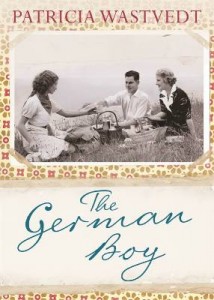 The German Boy
The German Boy
Patricia Wastvedt
Viking, 368 pp., £12.99
Paperback (large format)
Following on from the success of her debut The River, Patricia Wastvedt’s accomplished and compelling second novel takes place primarily in the interwar years of the early twentieth century, focussing on the complex relationships between two families as they come to terms with the momentous political events of the age. The prose is beautifully crafted, filled with lyrical descriptions, a keen sensitivity towards the characters and their sometimes difficult choices, and a sense of poignancy at roads untravelled. A delight to read: moving, thought-provoking and highly recommended.
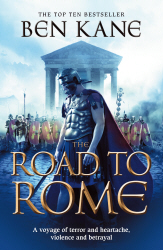 The Road to Rome
The Road to Rome
Ben Kane
Arrow, 608 pp., £6.99
Paperback
Concluding the story that The Forgotten Legion began, Ben Kane takes the reader back to Rome in the final years of Caesar’s dictatorship. The story follows the lives of three characters – two ex-slaves and an Etruscan haruspex or soothsayer – as they find themselves embroiled in the intrigues and conflicts of the time. The settings are vividly drawn and the moral dilemmas well explored as the characters are forced to decide where their loyalties lie. Also keep a look out for Kane’s latest, Spartacus: the Gladiator, which comes out next year.
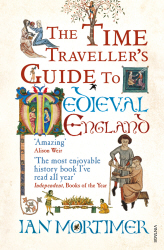 The Time Traveller’s Guide to Medieval England
The Time Traveller’s Guide to Medieval England
Ian Mortimer
Vintage, 368 pp., £8.99
Paperback
From the pen of historian Ian Mortimer comes an in-depth and accessible study of fourteenth-century life, ideal as an introduction to the period, and also (I imagine) a terrific resource for any historical novelists of the later Middle Ages. Assuming the perspective of a recently arrived visitor from our own time, Mortimer explores the workings of medieval English society, with chapters on everything from the landscape to food and drink, from health and disease to the law. Mortimer is also known for his Elizabethan mysteries under the pen-name James Forrester, and indeed a sequel of kinds to this book, The Time Traveller’s Guide to Elizabethan England, is due next year.
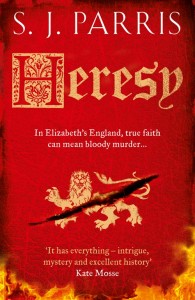 Heresy
Heresy
S J Parris
Harper, 512 pp., £7.99
Paperback
Speaking of Elizabethan mysteries, this debut offering from S J Parris deserves a mention. Narrated by Giordano Bruno, renegade monk, philosopher and spy, the tale unfolds in 1580s Oxford against a backdrop of murder, intrigue and religious strife. Fast-paced and with a keen sense of the issues of the age, it also happens to be the first in a series. The sequel, Prophecy, is already out in paperback and the third volume, Sacrilege, is set to be released in spring 2012.
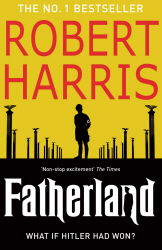 Fatherland
Fatherland
Robert Harris
Arrow, 400 pp., £7.99
Paperback
While not strictly a historical novel per se – Harris’ acclaimed thriller takes place in an alternate 1964, where Hitler won the Second World War – Fatherland is one of the most thrilling reads I’ve come across this year. What at first appears to be a straightforward murder investigation leads Kriminalpolizei detective Xavier March to uncover a conspiracy that runs to the very heart of the Nazi regime. Soon March finds himself in a race against time to expose the truth before the Gestapo catch up with him. If it sounds simple enough, think again. This is brilliantly constructed and thought-provoking stuff, crammed with twists and turns and with a denouement to remember.
After visits to Cambridge, Salisbury and Bath in recent weeks, the Sworn Sword tour stopped off last week in Wantage, Oxfordshire, for the very first Betjeman Festival. I was in conversation with Stephanie Merritt, better known as S.J. Parris, author of the excellent Elizabethan mysteries Heresy and Prophecy, about the attractions and challenges of historical fiction as a genre.
It’s always fascinating to discover the similarities and differences between other historical novelists’ approaches and my own, particularly when it comes to the all-important question of fact versus fiction. How much licence does a writer take when it comes to historical fact? Is it acceptable to alter the course of events in order to make for a better story? Or does the truth always take precedence, and must the fictional narrative be woven around that framework?
It was pointed out that whereas for Sworn Sword I have taken as my protagonist a fictional Norman knight, Stephanie’s novels feature the real-life character Giordano Bruno, a renegade monk and philosopher hailing from sixteenth-century Italy. While on the surface those might seem like two very different approaches to writing novels set in the past, when it comes to deciding how much licence to take with historical events, our views turned out to be very much alike. Whenever the drama of the story comes up against the facts, we both agreed, it is the story that has to win out. But when it comes to the small details that flesh out a setting and contribute to the period atmosphere – the food and drink or the décor of the time, for example – it’s important to get as much right as possible.
Of course the advantage in writing a novel set during the medieval period, at least compared with later centuries, is that the sources are sparser, the gaps in our knowledge wider and the uncertainties more pronounced. For the novelist, then, there are more opportunities to invent where things are not definitively known. Even so, getting the right balance between authenticity and a well-paced narrative is a tricky business. It’s a subject that I’m sure I’ll be returning to on this blog in future, as well as discussing during my upcoming events.
Speaking of which, coming up on Thursday 29 September is the first-ever History in the Court at Goldsboro Books in Cecil Court near Leicester Square in London. I’ll be there signing books and talking to readers about my work, along with as many as fifty other historical novelists including such luminaries of the genre as Bernard Cornwell and C.J. Sansom, both of whom were significant influences on my writing, as well as Ben Kane, Robyn Young, Simon Scarrow and many more besides.
Building on the success of the popular annual Crime in the Court event, it looks set to be a great evening and a unique chance to meet lots of your favourite historical authors in person. The event begins at 5pm and will carry on until 9pm. Tickets are £5 and can be purchased online
For details of all my upcoming engagements, visit my Events page. I’m adding new signings and talks all the time, especially in the run-up to Christmas. Already I’m starting to fill out my calendar for 2012 too, so keep checking back to find out when I’ll be visiting your area.

